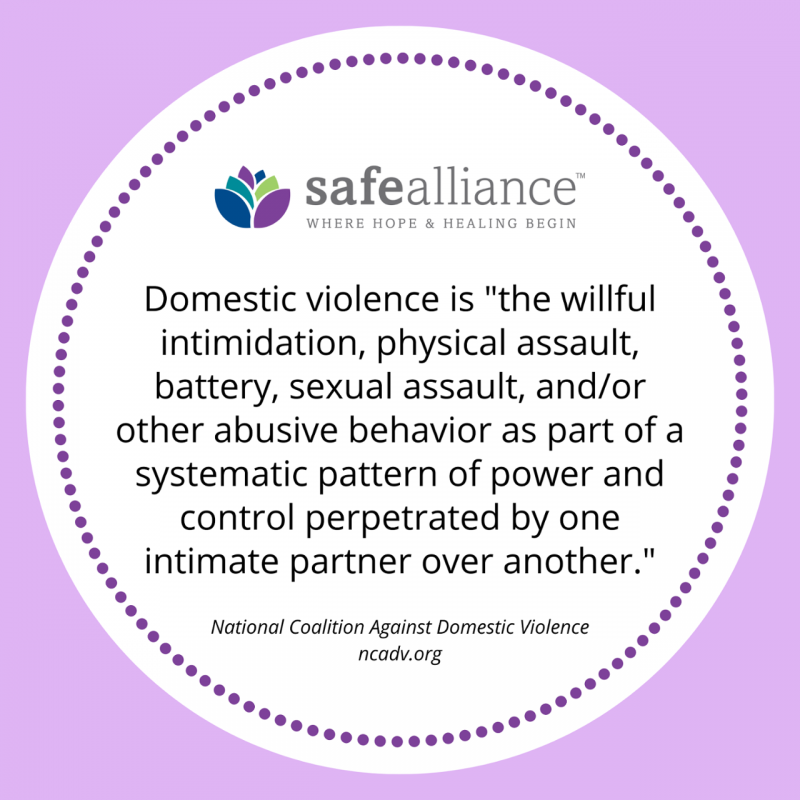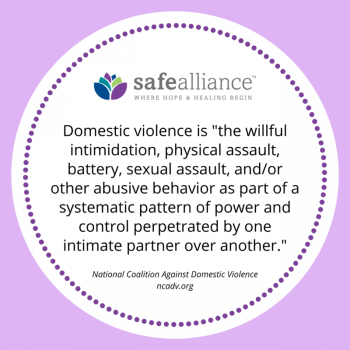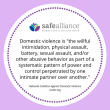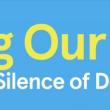Shining a light on domestic violence
According to the National Coalition Against Domestic Violence’s (NCADV) website, NCADV held a "Day of Unity" in October 1981 to develop a connection between others working throughout the U.S. to end the violence against women and their children. Six years later, NCADV established the first National Domestic Violence Awareness Month.
Rape culture, or blaming the woman –i.e., saying “she asked for it” because of her clothes, history, demeanor, or mental state; and “boys will be boys” – did and does make it harder for a woman to come forward to report the violence committed against her, unwomen.org states. It wasn’t until 1994 – when Sen. Joe Biden wrote the Violence Against Women Act (VAWA) working with the Judiciary Committee, NOW Legal Defense Fund and groups founded to end the violence, like the National Network to End Domestic Violence, and passed into law by Pres. Bill Clinton on Sept. 13 – that views about domestic violence against women began to change.
From the VAWA summary at https://obamawhitehouse.archives.gov: The Act “ensured police respond to crisis calls and judges understand the realities of domestic and sexual violence by training law enforcement officers, prosecutors, victim advocates and judges; VAWA funds train over 500,000 law enforcement officers, prosecutors, judges, and other personnel every year.”
Law enforcement now had to uphold a protection from abuse order regardless of whether or not it was issued in their state, as stated in this excerpt from VAWA: "Full Faith and Credit" refers to Section 2265 of the Violence Against Women Act (18 U.S.C. Section 2265). This section provides that any valid protection order issued in one state is to be treated by another state as if it were one of its own, and enforced in the same manner as an order issued in-state.”
VAWA brought domestic violence into the light. Women who had previously been told rape was their fault because they wore a short skirt or were dressed in some other way that rendered the rapist/abuser completely incapable of controlling themselves were coming to an end. In the VAWA, “Subtitle E: New Evidentiary Rules, Section 154: Makes evidence of an alleged victim's clothing, in a criminal case under Federal laws relating to sexual abuse, inadmissible to show that the victim incited or invited the offense.”
Eve Ensler wrote “The Vagina Monologues” in 1994. The play was based on her interviews of more than 200 women the world over. One monologue, “My Short Skirt,” is usually performed by a young woman informing all that no matter how short her skirt, it was not an invitation to rape, battery, or any other form of violence.
And, according to an article from Sage Journals, “research shows that officers who were hired prior to VAWA’s passage did change their views on domestic violence. They considered arrests to be an appropriate law enforcement response and no longer viewed domestic violence as a private matter in which police should not get involved (Meyer-Emerick, 2002; Robinson, 2000).”
VAWA has been reauthorized in 2000, 2005, 2013 and again last March by now President Joe Biden. Read the current VAWA Act here.
Statistics from Maine Coalition to End Domestic Violence (MCEDV) reveal that in our state, a domestic violence assault is reported to law enforcement every two hours and 22 minutes. Advocates from the MCEDV network worked with 12,516 people statewide in 2020. Of the total served, 612 people found safety in a Domestic Violence Resource Center sheltering program. This represents under 5% of the total number of people served in 2020. And, in 2020, 441 volunteers from across the state donated 36,576 hours to help meet the needs of victims of domestic violence. These hours have a monetary value of at least $548,640.
In Maine, including MCEDV, those in domestic violence situations can turn to: The National Network to End Domestic Violence, Maine Coalition Against Sexual Assault, Maine Coalition to End Domestic Violence, The Family Voices Project, Safe Voices, Next Step Domestic Violence Project, Abused Women’s Advocacy Project, Immigration Resource Center of Maine: Gender-Based Violence Office; The Family Violence Project, Sexual Assault Response Services of Southern Maine, New Hope Midcoast, Finding Our Voices, Partners For Peace, The Family Crisis Center, or The Next Step Domestic Violence Project, depending on where they live. Here in the Midcoast and northward, New Hope Midcoast and Finding Our Voices are the victim and survivor advocacy groups always ready to help – always.
This month, the Boothbay Register/Wiscasset Newspaper is shining a purple light on the forms of domestic violence; the impact of a book club begun by Finding Our Voices, held for the women at Windham Prison; and one local woman’s story and how she escaped from her abuser.
Remember: There is no excuse for domestic violence.


































